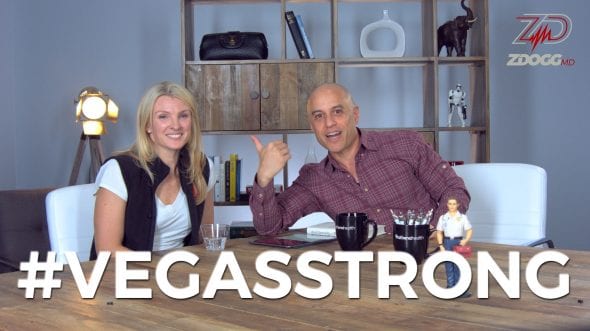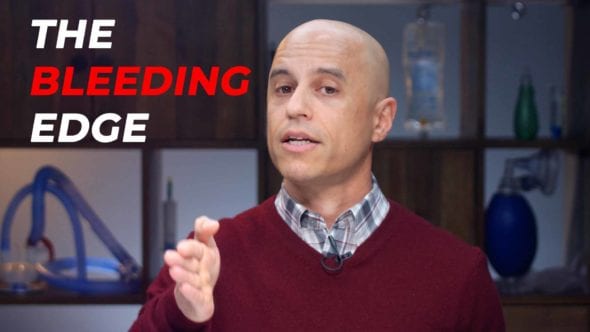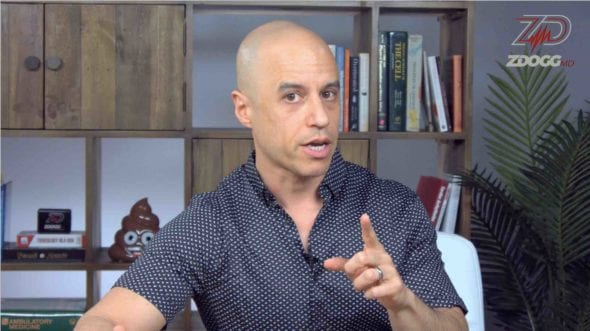Does your doctor really care about you?
We’ve all been there. You go in to see your doctor and instead of being greeted with a smile and eye contact, you’re met with the clackity-clack of typing and the clickity-click of a mouse (or a face underlit by the cold glow of an iPad). The crucial ritual of human relationship and caring is now replaced with uncertainty and detachment as you are sit there, half-naked on the cold exam table in an itchy gown.
“You’re 56,” I say, speaking to a new patient. “Have you had a colonoscopy?”
“Yes, I did, right when I turned 50,” she says. “Isn’t it in there?”
“Well,” I reply, awkwardly. My shoulders hunch over my laptop screen, my hands scrunching to conform to the too-small germ-encrusted keyboard. I click and open a dropdown menu. A long list of folders appears, representing scanned-in prior notes. The folders are differentiated only by date. I start opening them.
My patient is getting impatient, and I don’t blame her. “Well, can’t you just search for ‘colonoscopy’?” she asks.
The “Electronic Health Record (EHR)” has little to do with health. It’s a billing and compliance platform designed to serve the walled gardens of health systems, not to provide amazing seamless care, open portable records, and usability for both medical professionals and patients. So every doctor you visit is going to ask you the exact same questions: what medications do you take, what chronic medical conditions do you have, what are your allergies, have you had a mammogram?
So who suffers?
You do (of course), but so does that clickity-clacking doctor. Handwritten notes are mostly a thing of the past, and our new physicians have only been trained using electronic medical records. While we’ve eliminated some errors, we’ve introduced new ones. And in the process, we’ve inadvertently sucked the art and joy and humanity out of the equation. Doctors can’t even look their patients in the eye in their most vulnerable moments.
You may wonder why we all use electronic medical records if they suck so much? Well, we pretty much have to (according to the government’s “Meaningful Use” campaign). When the rest of the world gets an iPhone (from a usability standpoint), we’re given a 1990’s car phone and told, “Make it work, you Luddite.”
Why can’t we fix it?
To devise tactics to make the current system “work” is a start, but ultimately it might just be throwing good money after bad.
How about we stop accepting a broken set of incentives and actually design electronic health record to be useable by clinicians and patients and data analysts? Can we document stuff that matter to clinicians and patients and automate the rest? This means incorporating the patient’s narrative (their story, for gosh sakes) and cutting through the boilerplate bullsh*t and cut/paste crap and useless alerts and garbage “updates.” Let’s start valuing meaningful interactions. Until we get Congress, insurance companies, Medicare, and all of the players involved to change those incentives, nothing will improve. We can complain all we want, but will we do anything meaningful?
A movement is well underway, with large health IT companies like athenahealth trying to re-focus on what matters most—freeing us from the meaningless busywork that stands between us and our patients. Health IT policy and technology are constantly evolving, so why should the care team’s voice stay silent? It’s OUR frickin’ workflow, let’s take it back! And as a patient, your voice is the MOST important.
Here’s what you can do: check out the original video on Facebook, leave your gripes—and more importantly your constructive feedback—for the powers-that-be. Share it with everyone who’ll listen so we can start to TAKE MEDICINE BACK.
And here’s a followup live episode taking your comments!
– Okay guys, have you ever wondered what’s changed in medicine that now you go to the doctor and they don’t look you in the eye? Instead, they’re looking at a computer screen, their back maybe to you, you’re sitting there up on that exam table in a paper thin gown with your butt hanging out feeling vulnerable, thinking, you know, this person doesn’t care about me because they’re starring at a computer asking me questions and clicking boxes. What happened to medicine? We went into it, doctors, nurses, everybody who takes care of patients on the front line, to connect with other human beings and yet now, that seems to be gone. We can’t even look at our patient’s in their most vulnerable moments. The gift they give us is being vulnerable with us and we’re not able to be there for them. Why? The electronic medical record. And I will not call it an EHR, Electronic Health Record because there is nothing about health in this thing. Patients, you guys need to understand how this has destroyed medicine. It was a great hope that turned out to be false. Let me explain what’s going on in that exam room. You come in, the doctor immediately sits down, logs into their computer, and starts clicking. Okay, so have anything changed in your medications? Well, you’re thinking, I’ve already been through this at this clinic and that clinic and this, why don’t they have it in the computer? Because one of the great tragedies of electronic medical records is they never were designed to talk to each other. Why is that? Because hospitals and health systems who spend billions on instituting electronic health record have zero incentive to have you share that data with other health systems. They wanna keep you in their group and make it as hard as possible to share data so the electronic medical record vendors complied with that, there was no mandate that there was interoperability between these records. So who suffers? You and that doctor who’s trying to fill-in the blanks from your urgent care, the other system you went to, the other state you were in. The other thing they’re clicking through and they’ll say, okay now let me try to figure out what’s going in this patient’s history. I’m gonna look through some previous notes and well, in the old days, we would have the chart right there in handwriting and you would feel that narrative because we couldn’t write a whole lot. We would basically write what was important because otherwise you get writer’s cramp. Now with electronic medical records, it’s copy paste, take the old note, copy paste, blow in templates, all kinds of nonsense starts to bloat these notes. So in order to learn what’s going on with you, that physician or nurse practitioner of PA has to click, click, click, click, click through a bunch of notes trying to figure out what’s important and what’s not. If you looked at the screen they saw, you would be like, ahh! It looks like something out of mission control. It’s all this information and most of it is absolutely irrelevant. Why? Because the electronic medical record has nothing to do with patient care. It has everything to do with billing, billing and compliance for legal reasons. So if you document a bunch of stuff, the theory goes, you’re less likely to be sued in a society that’s very litigious. And if you document a bunch of stuff that’s the only way the insurance companies and Medicare will pay you. So the electronic medical record vendors built what was asked for, a compliance vehicle, a cash register, with a little patient care stuff tacked on. So what happens in that visit? The doctors clicking through, trying to figure out what’s important to you. And instead, it’s deluged with billing codes and a bunch of bloated crap that has nothing to do with you. Could they ask you, hey, what’s your story, tell me, look you in the eye? Well, they could, except the new generation of physicians is being trained never having not known an electronic medical record. They are conditioned to trust the chart which is so imperfect, that’s a euphemism, imperfect, it is a mess. They’re conditioned to trust that chart over the patient’s story. I have seen this on rounds with new residents who are starting now in this month. They believe the chart over the patient, they look at the chart instead of making eye contact. They’re constantly charting. This has destroyed the fabric of what is medicine. It is a relationship. It is not charting, it is not billing, it is not legal stuff, it is a relationship between you and I in a sacred space where you give us the gift of making yourself vulnerable during the toughest times of your life. And the least we can do is look you in the eye and the electronic medical record has robbed us of that. And here’s the question. Why can’t the doctor just do the charting outside of the room? Because we can chart a lot of things, now we have to. Which means, if we don’t do the charting there in the room with you, with 30 patients lined up, we’re gonna be doing that charting at home. Which means, I can’t read a bedtime story to my daughters because I will be there on Epic clicking the boxes. Is it Epic’s fault that medicine has been destroyed by the electronic medical record? No. Is it McKesson’s fault? Is it Cerner’s fault? Is it Athenehealth’s fault? No! It is our fault, patients and doctors for rolling over and letting our profession be destroyed. Why? Can’t we fix it? Can’t we just scribes come in the room and chart for us? Sure, if you wanna throw good money after bad. All you’re doing is complying with a broken set of incentives. And you’re adding another human into the mix. I mean, it’s better than what we have but why can’t we accept that? Should we have AI that just acquires all the data in the room through Google Glass and prints out a big note? Sure, that’s another possibility. How about this though? How about we stop accepting a broken set of incentives that we have to comply with? Why should we have to do a 99205 billing code? Why should that be part of our lexicon? How about this? Make an electronic health record about outcomes which means a narrative about a patient’s problems and story, their social history is important, valuing the face to face time and the compassion that amazing clinicians can show their patients, put a value on that ’cause right now, we don’t get paid for that. We get paid to click the boxes. We don’t get paid to look you in the eye and that has got to change. Until we get congress and the insurance companies and Medicare and all of us to rise up because we are complicit in this, doctors, and nurses, and health care people, we are conditioned, conditioned by inertia to obey authority and it’s time we stop. We complain all the time, do we do anything to change it? No. Here’s what you can do to start. Share this video with your patients, with other health care people. So that we can get a critical mass and say, you know what? I’m not gonna stare at this computer anymore, we’re gonna take medicine back. As patients, we’re gonna reconnect with our clinician and we’re gonna have some compassion for why they aren’t looking us in the eye. It’s not because they don’t want to, it’s because we can’t. Please share this. And we out.
Related Videos
Category
- The ZDoggMD Show (798)
- Featured Videos (188)
- Doc Vader (142)
- Against Medical Advice (128)
- Medical Humor (95)
- Public Service Announcements (87)
- Music Parodies (74)
- Nurses (59)
- Meditation (38)
- ZVlogg (36)
- The VPZD Show (31)
- ZTalks (28)
- ZBlogg (24)






